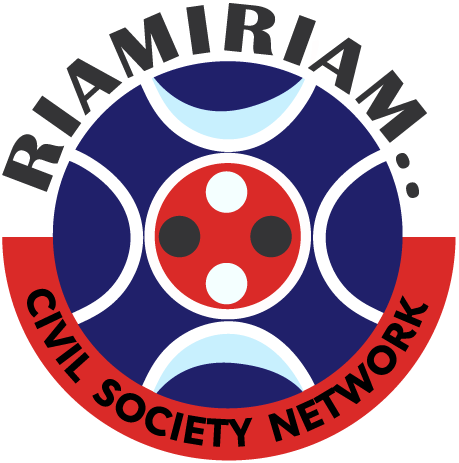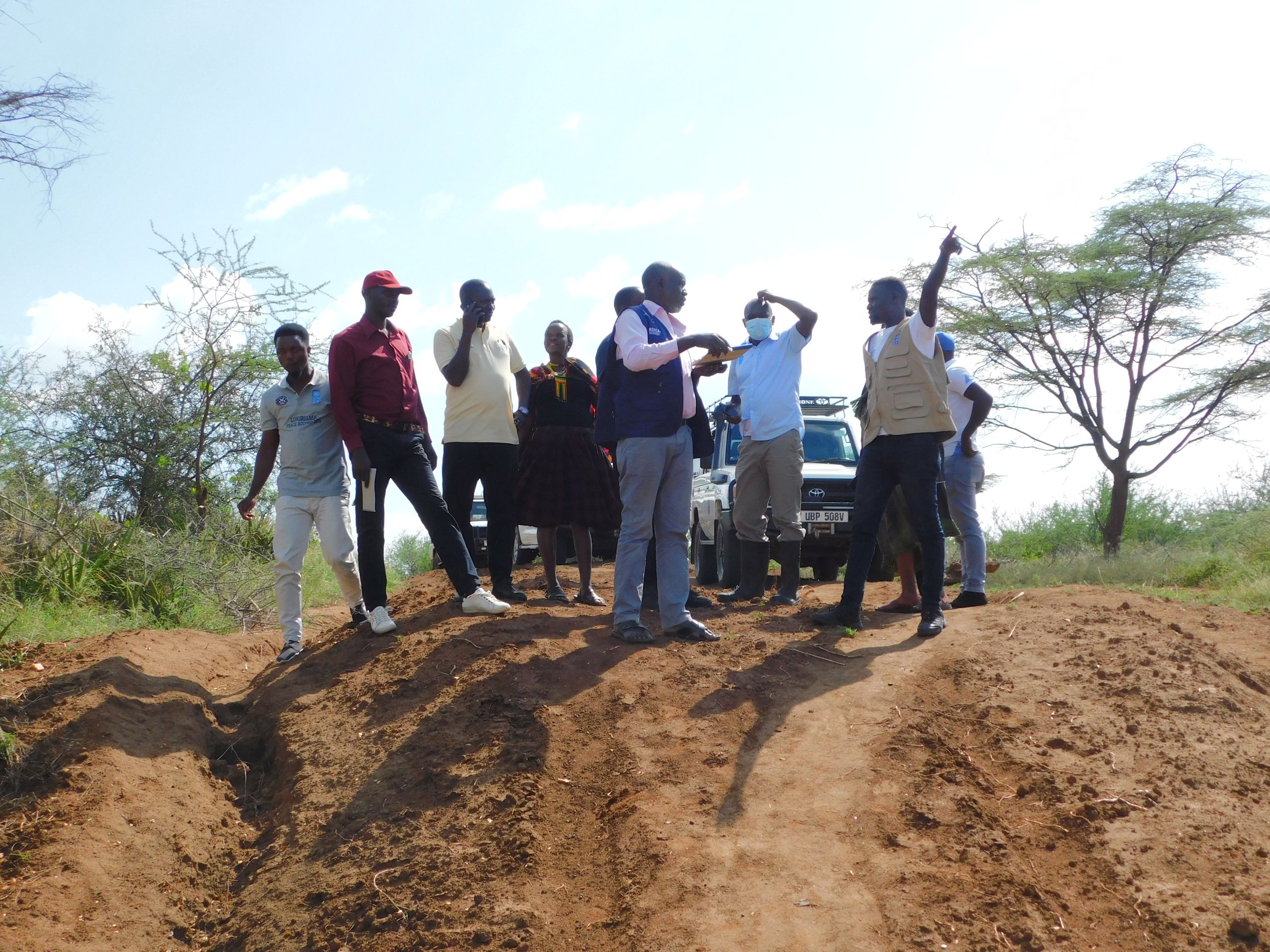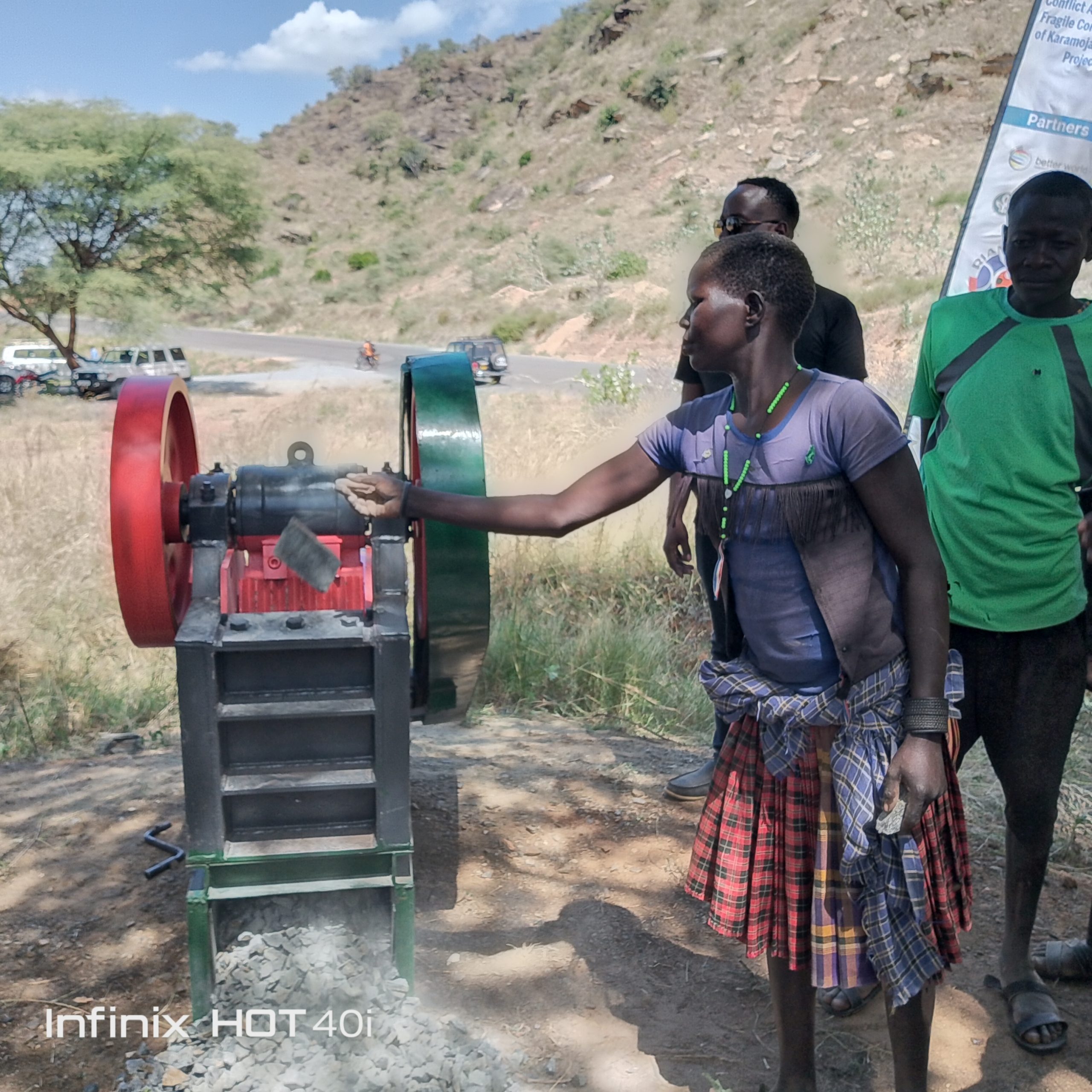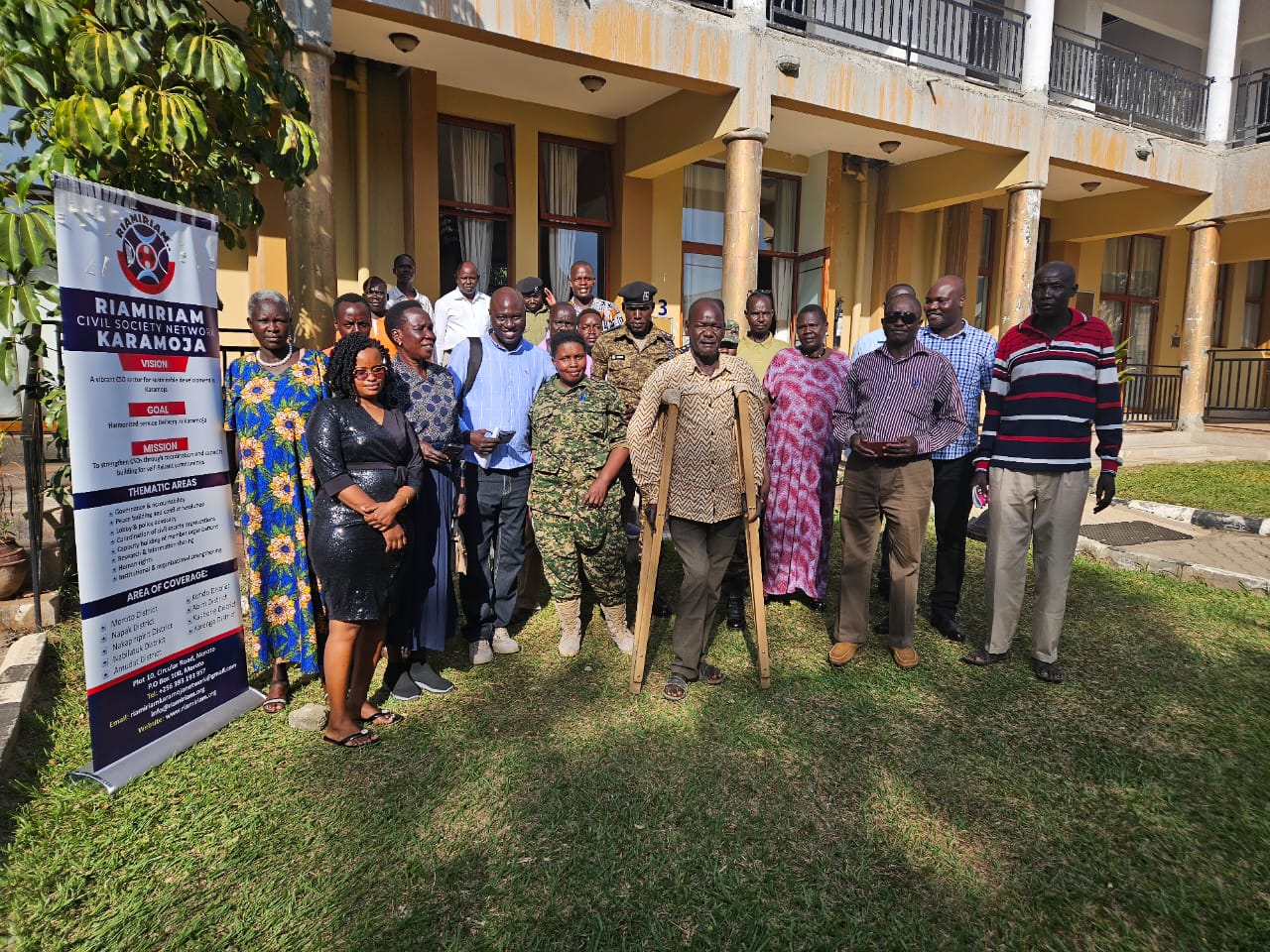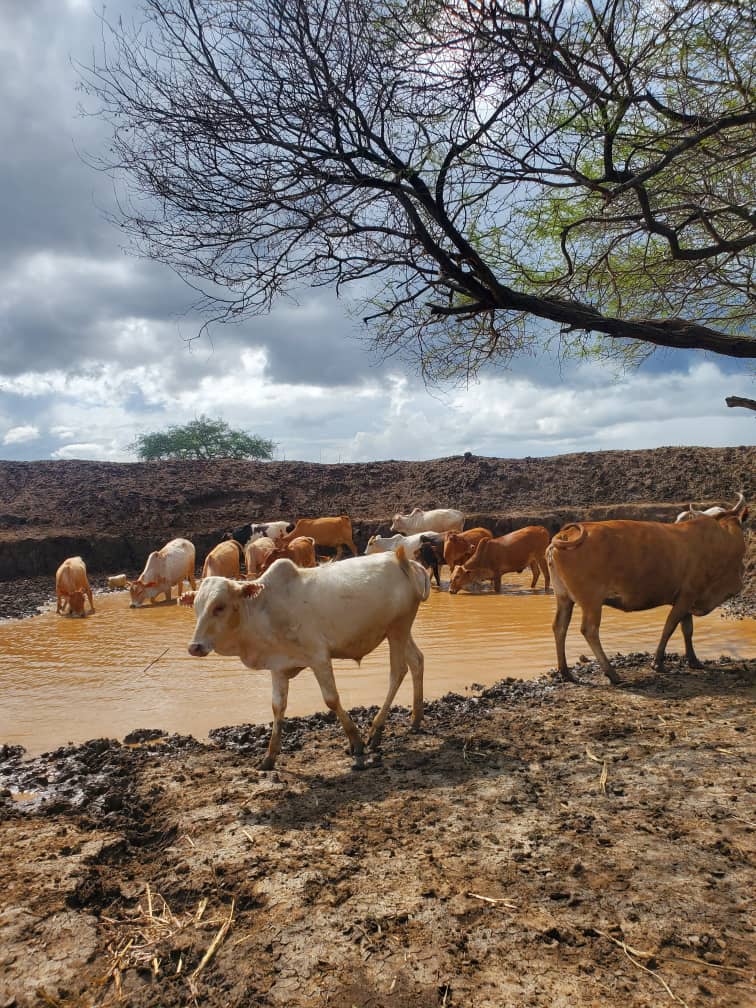
A New Lease on Life: How Desilting of Water Ponds is Transforming Livestock Keeping in Rupa Sub County,Moroto District.
For decades, cattle keepers in Rupa Sub County, Moroto District, have struggled to access clean water for their livestock. The water ponds, which were once a reliable source of water, had silted up over the years, leaving the cattle keepers with no option but to trek long distances in search of water.
But all that has changed, thanks to the intervention of Riamiriam Civil Society Network – Karamoja, with funding from the Korean International Cooperation Agency (KOICA) through the United Nations Development Program (UNDP) under the Building Resilience in Conflict Affected Communities in Karamoja (BRICK) project.
The project recently supported the communities to desilt the water ponds, restoring them to their former glory under what is known as cash for work. In return for their labour, each participant was paid Ug Shs 10,000 per day over the period of 20 days totaling to Ug Shs 200,000.
Riamiriam Civil Society Network-Karamoja, in collaboration with partners who include Grassroot Alliance for Rural Development (GARD), Volunteer Efforts for Development Concerns (VEDCO), Warrior Squad Foundation, and Better World is implementing the six-month BRICK project.
About 7,500 members of the community participated in the cash for work activities in the whole of Karamoja which included opening of access roads to facilitate access to vital social services like markets, health facilities, schools; de-silting of water ponds to enable cows, goats, sheep etc to have access to water and regenerating trees in order to protect environment.
Riamiriam Civil Society Network-Karamoja identified 2,100 participants for cash for work in Pupu, Lobuneit, Nakiloro, Lotisan Parishes in Rupa sub county, Moroto District.
The project aims to address three interconnected challenges which include high vulnerability to climate change, poverty, and food insecurity, inter-communal tensions and conflicts in the vast border regions of Karamoja and rising prevalence of violence against women and girls.
“We had lost hope,” says Lokure Lodonga, a cattle keeper from Lokalimon village in Rupa Sub County. “Our animals were suffering, and we were struggling to find water for them. But now, thanks to the desilting of the water ponds, our animals have access to clean water. It’s a new lease on life for us.”
The desilting exercise has not only restored the water ponds but has also transformed the livelihoods of the cattle keepers. “We used to spend hours every day searching for water,” says Ezekiel Lokwang, another cattle keeper. “But now, we can focus on other activities, like grazing our animals and tending to our gardens.”
The impact of the desilting exercise goes beyond the cattle keepers. The entire community is benefiting from the restored water ponds. “Our children can now attend school without having to worry about finding water for our animals,” says Lokwang. “And our women can focus on other activities, like income-generating projects.”
The BRICK project is a testament to the power of community-led initiatives. By working closely with the cattle keepers and the local community, the project has been able to address a critical need and transform the livelihoods of the people.
“We are proud of what we have achieved,” says Richard Omoding, Executive Director of Riamiriam Civil Society Network – Karamoja. “The desilting of the water ponds is a critical step towards improving the resilience of the cattle keepers and the entire community.”
As the cattle keepers in Rupa Sub County continue to benefit from the restored water ponds, it is clear that the BRICK project is making a positive difference in the lives of communities in Karamoja.
“According to the UNDP’s 2022 Karamoja Resilience Report, “water scarcity affects 75% of pastoralist households.” Riamiriam’s efforts are crucial in addressing this challenge.
“Water availability has significantly improved livestock health,” notes Dr. Inangolet, the Production Coordinator, Moroto District. “This initiative will reduce animal mortality rates which is always common during the dry season in the community.
FACT FILE:
- 7,500 total number of beneficiaries of cash for work in Karamoja
- 2,100 cash for work beneficiaries targeted by Riamiriam Civil Society Network-Karamoja in Rupa sub county
- 20 days of work
- UGX 200,000 per participant after completing cash for work
- 70% female participation
- The community identified 13 sites comprising opening access roads, desilting water ponds, regenerating trees.
Funders
- Korea International Cooperation Agency (KOICA)- US$4M
- United Nations Development Programm (UNDP)- UNDP US$1M
Partners:
- Riamiriam Civil Society Network-Karamoja
- Volunteer Efforts for Development Concerns (VEDCO)
- Grassroot Alliance for Rural Development (GARD)
- Better World
- Warrior Squad Foundation
- Office of the Prime Minister (OPM)
- Ministry for Karamoja Affairs
- Ministry of Local Government
- Moroto District Local Government
- Kotido District Local Government
- Kaabong District Local Government
In Brief
- Project Name: Building Resilience in Conflict Affected and Fragile Communities of Karamoja (BRICK)
- Coverage: Moroto, Kaabong, and Kotido
- Duration: 30 months (July 2023- December 2025)
- Budget: US$ 5M (KOICA US$4M & UNDP US$1M)
